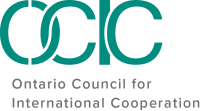CLICK HERE TO SEE OUR VIRTUAL EXHIBIT
Transformations: Stories of Partnership, Resilience and Positive Change is an award-winning collaborative photojournalism project intended to increase dialogue and further understanding of international partnerships that address complex global challenges. Through individual and organizational stories we invite you to actively engage in a new narrative on international cooperation and solidarity.
This initiative is rooted in the Istanbul Principles for CSO Development Effectiveness, a set of mutually shared values guiding the development work of civil society organizations (CSOs) worldwide. These include to:
- respect and promote human rights and social justice
- embody gender equality and equity while promoting women and girls’ rights
- focus on people’s empowerment, democratic ownership and participation
- promote environmental sustainability
- practice transparency and accountability
- pursue equitable partnerships and solidarity
- create and share knowledge and commit to mutual learning
- commit to realizing positive sustainable change.
Through this exhibit we invite you to learn about the work of Canadian Feed The Children, Eel Ground First Nation, Chippewas of Nawash Unceded First Nation (Neyaashiinigmiing), Garden Hill First Nation and Aki Food Inc. in addressing food sovereignty challenges, and in supporting community-led initiatives and holistic community health. The stories presented were documented by OCIC and Allan Lissner, Praxis Pictures, in November and December 2017.
Having technical difficulties? Click here to view on Youtube.
Our Collective Call to Universal Action
Many Canadians are aware that there are complex food security challenges in Indigenous communities. A growing number, moved by the Truth and Reconciliation Commission of Canada (TRC) and its 94 Calls to Action, are becoming more aware of grassroots Indigenous rights movements around the world, and are seeking out opportunities for reconciliation and transformative action.
This very specific context, coupled with the 2015 launch of Agenda 2030 — a new, universal and integrated set of global goals, targets and indicators for sustainable development — mandates Canada and Canadians to see ourselves as part of the Global Goals, and to include Canada in the narrative to ‘leave no one behind’.
“The call to leave no one and no ecosystem behind presents an opportunity for the global development sector to embrace and strengthen partnerships within Canada and with Indigenous communities who are already carving out the solutions for themselves.”
In addition, in 2016 Canada became a signatory to the United Nations Declaration on the Rights of Indigenous Peoples (UNDRIP). Amongst many obligations, UNDRIP requires Canada to protect Indigenous peoples’ right to self-determination in their pursuit of economic, social and cultural development, along with effective mechanisms to redress for any action which dispossessed Indigenous people from their lands or resources.
At this juncture in history it is therefore incumbent upon us all to seek to comprehend the impact of the forcible removal of Indigenous children from their families and communities to residential schools. It is time for us to listen to Indigenous Elders, survivors, community leaders and members, youth and children, alike, and to acknowledge the lived experience of loss. This includes the loss of land rights, outlawing of cultural practices and languages, and the loss of traditional practices for accessing, hunting and growing food.











